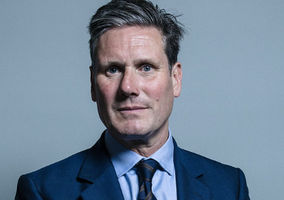A first of its kind research institute dedicated to the organisation of charities, rather than just to giving, opens in Oxford today.
The Gradel Institute of Charity, based in New College, University of Oxford, is a research centre which will aim to help government and policymakers take more of an interest in the role charities can play.
Stephen Bubb, the executive director, will be joined by professor Peter Frumkin as the academic director.
Bubb, former CEO of ACEVO, told Civil Society: “It is, we believe, the first research institute in the world to look at charities as organisations.
“So most of the current institutes, there are quite a few in America, they concentrate on giving, philanthropy.
“Whereas our focus is absolutely around how you run a charity, so it's around the governance and leadership, and the impact that charities have. So that's where our research will be honed.
“But we are very clear that it's research that will be used by charities. We also believe it will form the basis of executive programmes and in the long term I very much hope we could look at some teaching. That would be a long term aim, our focus at the moment is absolutely around research.”
Bubb added: “I want to see a flowering of academic interest in charity because frankly there is very little at the moment. It's just not a subject people pay serious attention to, despite the fact that charities are such an important part of the economic and social landscape of the country.”
“We're absolutely dedicated to making our research useful. We want people in the sector to help guide us in areas they think are most useful. So that partnership approach, collaboration approach, is really pretty core in what we want to do.”
‘Under researched’ and therefore ‘underestimated’ sector
Bubb said: “Our view is because the sector is so under researched, it's not valued enough, it's underestimated. And I think by an Oxford institute doing important research, I hope that will feed into people in government, policymakers, taking more of an interest in what role charities can play.”
The executive director says “it has been pretty noticeable in the last five years how unnoticed charities are by the government”.
“We will use our research to defend and promote charities. We're not going to put up with any nonsense about ‘why do charities fund infrastructure, why do charity chief executives need to be paid’. We will be upfront, pointing out how important governance and leadership is and therefore how you need to invest in it.”
He added: “There are those in government who just think charities are pesky activists best ignored, which is short sighted and foolish. And because they have that view they don't understand the existing role that charities play. For example, a third of all medical research is carried out by charities. It's important. Of course, some foolish people in government don't like charities' role in social change, in campaigns, whereas that's core to the charity mission and has been for four or five centuries. So there's quite a lot to do.”
Frumkin said in a statement the institute has the “dual goal of catalysing the resources and expertise of the University of Oxford to develop new insights about charities, while also translating these ideas into programmes that engage leaders who are committed to achieving greater effectiveness in their work”.
Conservative MP Penny Mordaunt said in a statement: “The establishment of the world’s first research centre focusing on charity is an inspiring and essential step towards understanding and addressing the critical challenges faced by charitable organisations.
“May its work pave the way for a better understanding of the sector and empower individuals and organisations to create lasting and positive change in society.”
Related articles












